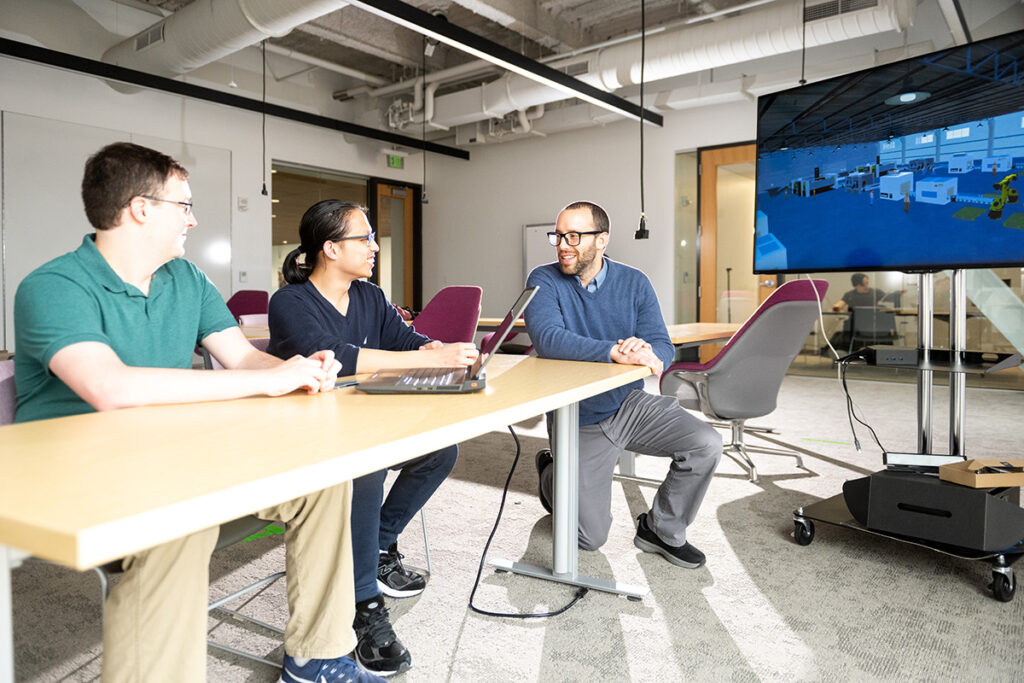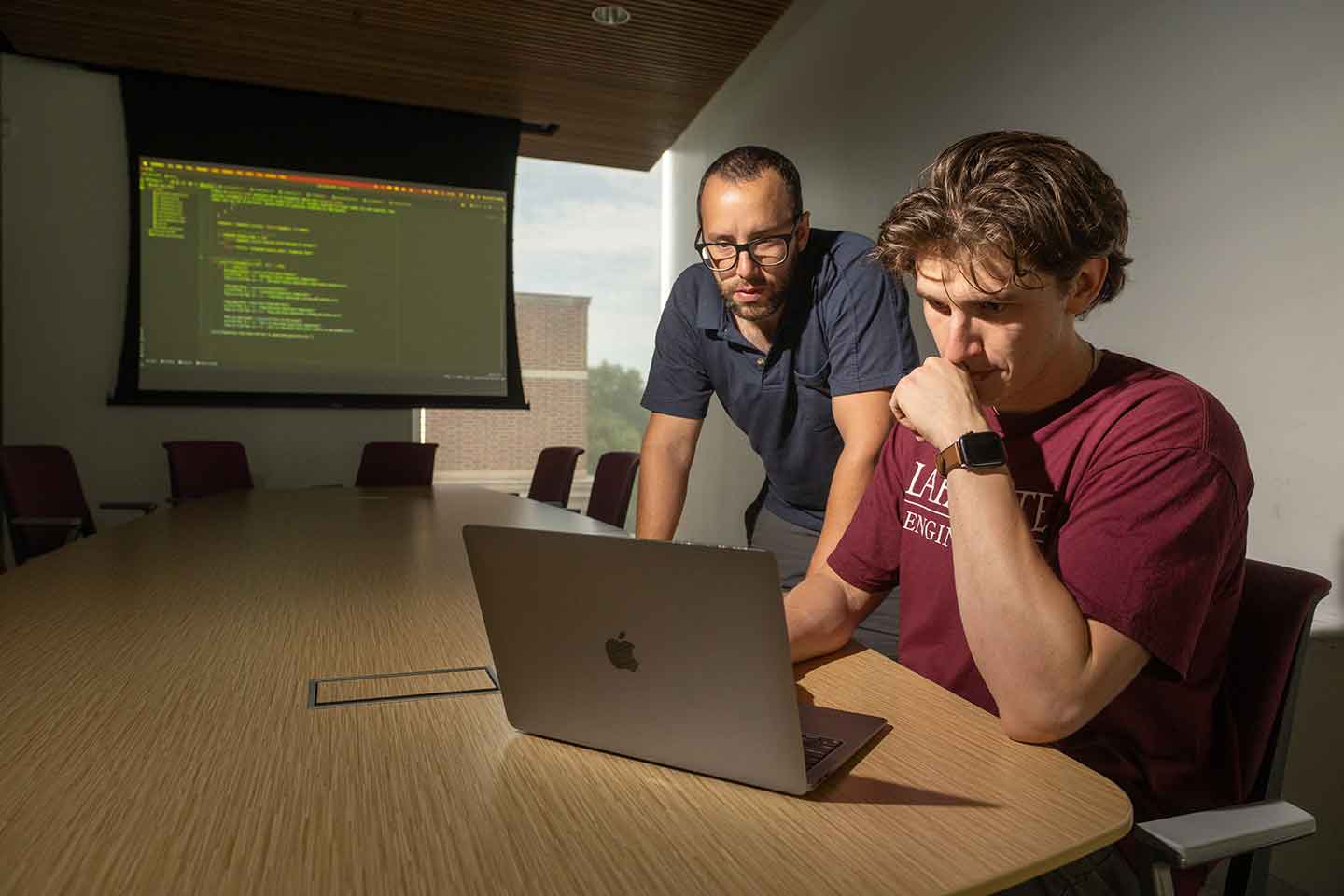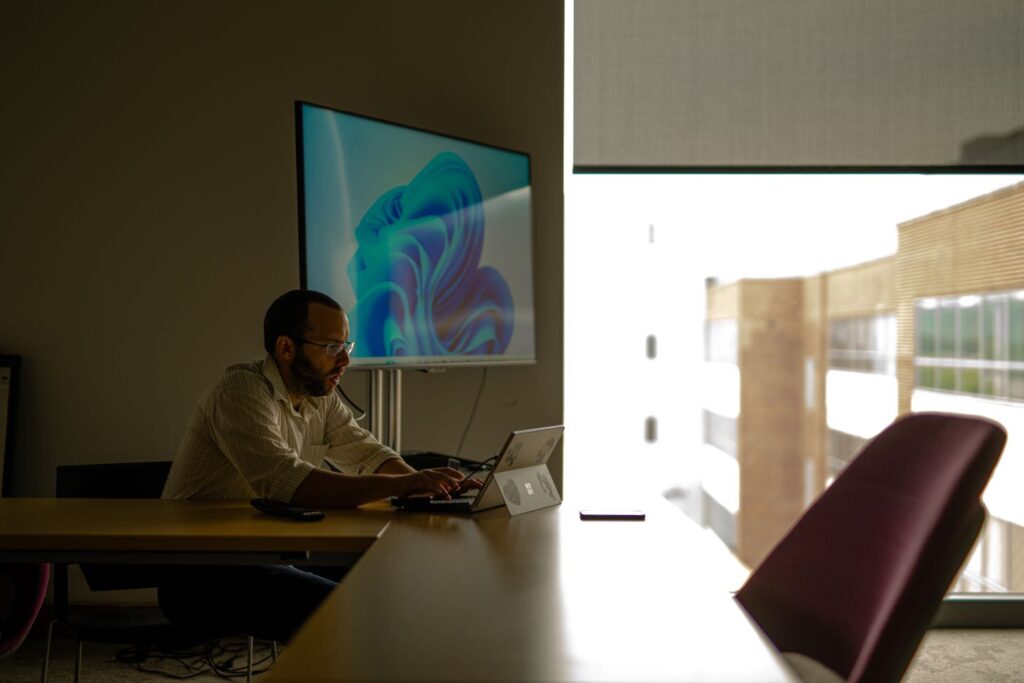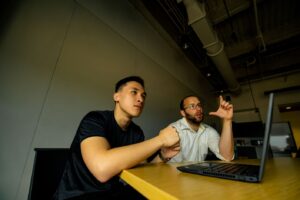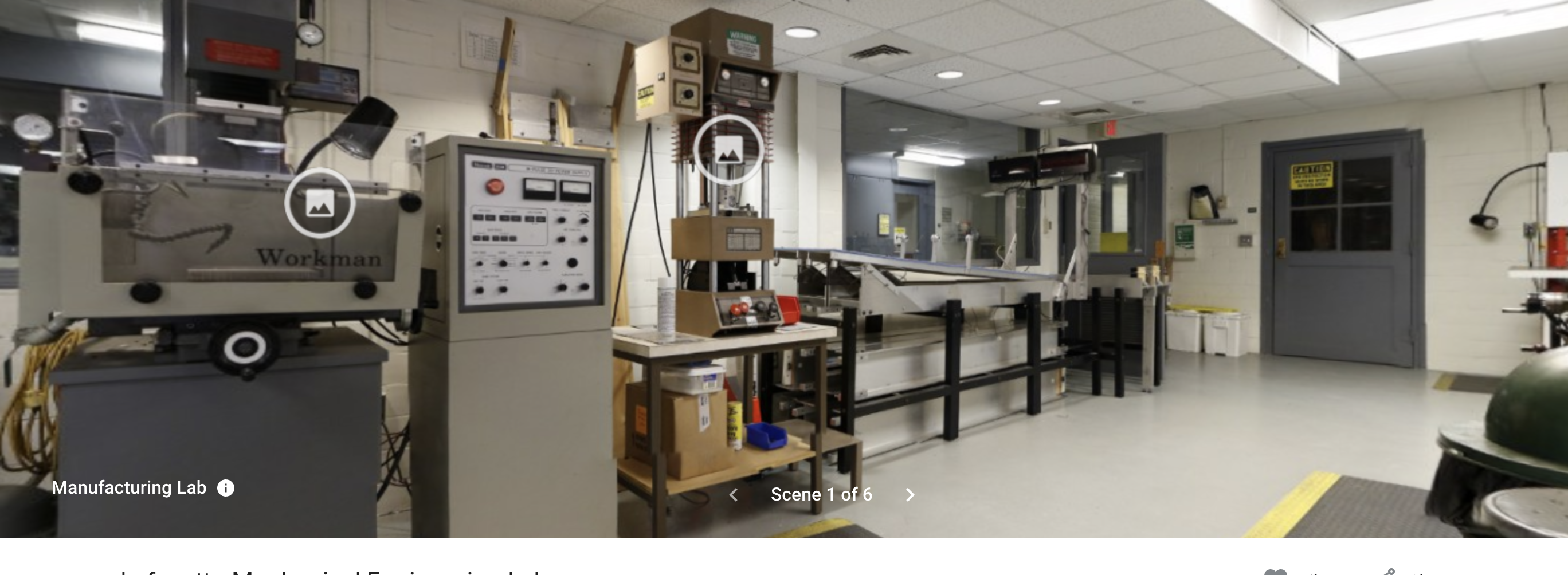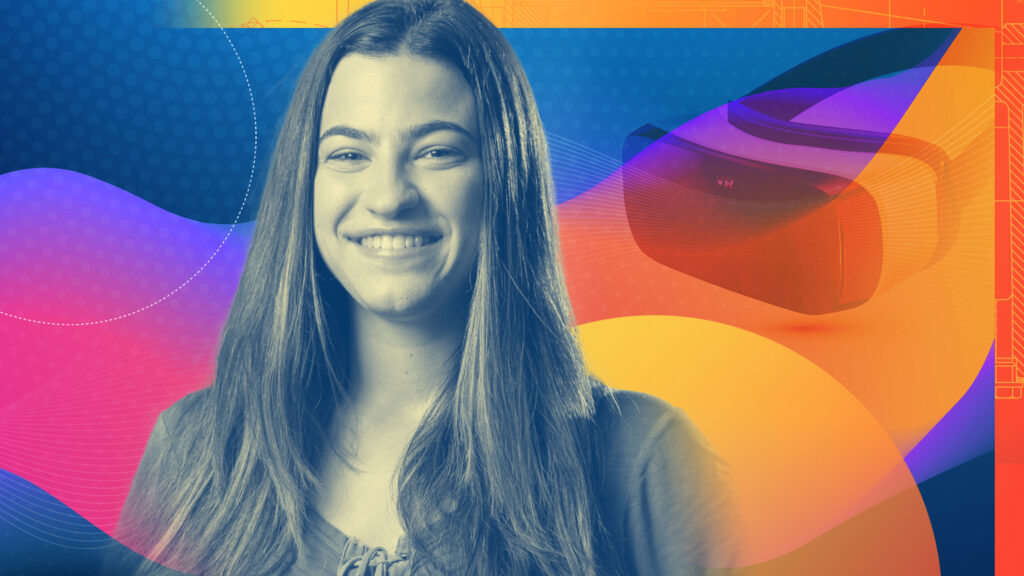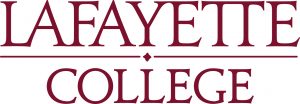A professor-student team of computer scientists is changing the landscape of production management with its latest research.
In collaboration with Christian Lopez, assistant professor of computer science, affiliated with mechanical engineering, Aidan Mathieu ’26 and Wilson Hong ’26 are creating game-based learning models to support the production engineering training process. (see Full article HERE)
